At McCallum Place, we value the important role the client’s support system has in the treatment process and encourage loved ones to partner with our clinical team in becoming part of the solution. We recognize higher recovery rates are often associated with providing loved ones the support and education they need to be part of the recovery process and treatment works best when the family is involved. We have specifically designed the following family programs because we believe loved ones are a great resource to one struggling with an eating disorder.
McCallum Place Family Education and Support Programs
Family Sessions
Families of adult clients are strongly encouraged to meet with the client’s clinical team on a regular basis. Please call or email the client’s assigned therapist and assigned psychiatrist to schedule your family sessions in advance.
All families of minors (clients under the age of 18 years old), will have weekly family sessions. This session can be facilitated in a mode that best meets a particular family’s needs (e.g., via phone, or shorter sessions of 30 minutes, etc.).
Virtual Community Support Group (Alumni & Non-Alumni)
Day/Time: Tuesdays 5:15 pm – 6:15 pm (CST) > every Tuesday of the Month
Zoom ID: 918 5472 5048
231 W. Lockwood Ave., St. Louis, MO 63119
Eating disorders support for anyone seeking recovery, and support in recovery, from an eating disorder. All genders and ages. Consent for ages 17- is needed, please email for details. To RSVP, email supportgroup@mccallumplace.com.
Family Based Coaching Group
McCallum Place St. Louis
Day: Every Friday
Time: 9:30am-10:30am
Location: Virtual via Zoom
McCallum Place offers Family Based Coaching via Zoom. This group takes place virtually every Friday from 9:30 am – 10:30 am. Laura Bumberry, Psy.D. – Licensed Clinical Psychologist, DBT Therapist, FBT Therapist, will facilitate the group covering skills related to supporting the adolescent client in the recovery process.
*Contact Laura@partnersinwellnessstl.com to sign up and obtain login information*
Collaborating with Family-Based Treatment Providers
Many parents approach eating disorder professionals with some caution and fear that they may be blamed for their child’s eating disorder behavior, and they sometimes express feelings of guilt, confusion, or even despair. Additionally, families may have heard stories of blame, avoidance, or exclusion from the care of their child. At McCallum Place, we are committed to involving families as vital members of the treatment team. This is particularly important for children and adolescents (we treat children as young as age 10).
At McCallum Place, families who have loved ones who are receiving treatment are asked to fully engage in the treatment process. Upon admission, we talk with clients and their loved ones about what brought them to treatment in an effort to understand the history of the eating disorder behaviors. We believe that families are experts in understanding their children, and we ask them to have a seat at the table as we discuss treatment plans and progress.
Implementing Family-Based Treatment for Eating Disorders
For some families, we believe that the best approach is Family-Based Treatment (FBT). This approach is designed to empower and educate families, and to incorporate them into the recovery process. It affirms the importance of parental authority and works to remind parents that they intuitively know how to feed their children, even if that confidence has been eroded by the intrusion of the eating disorder into the family system. The goal of the FBT model is to empower parents to embrace their role as parents and, with love and structure, guide their children back to normal eating.
Many treatment centers do not utilize the Family-Based Treatment model due to a perception that it does not integrate well with a residential treatment model. Our commitment is to collaborate with families and professionals who are using this model and incorporate the FBT principles into treatment when clinically indicated to be the best approach for the client and family.
Empowering the Family Throughout Treatment
When it comes to Family-Based Treatment in the residential or partial (PHP/day treatment) setting, we see the role of the treatment center as providing the following:
- A supportive environment that provides medical and nutritional care
- Weight restoration, particularly when the child is severely underweight and has been unable to regain the weight in their current context
- Coaching and empowerment for parents on how to support their child at meal times, through triggers, and with emotional regulation
- Education on topics such as eating disorder behaviors, consequences, complications, weight gain, and the refeeding process
In the beginning stages of treatment, we work to educate parents on these important topics, especially if they have not been working with a professional team prior to admission. If families do come to us with an established outpatient team, we will include that team in consultation on a regular basis and incorporate their recommendations into our setting.
We also involve the family throughout the treatment stay. This includes weekly family sessions, opportunities to eat with their child, and consistent communication with our treatment team. Parents can also attend weekly skills training groups while their children are in treatment.
Once the child is medically stable and has better cognitive functioning due to improved nutrition, the family is brought in to coach the child during meals while supported by the staff. Eventually, families and clients have passes together and are given opportunities to practice eating outside of the treatment setting. This practice prepares the family for the return home and supports the FBT philosophy of parents being in the ‘driver’s seat’ of the child’s recovery. In this context, the treatment center takes on the role of a supportive coach working alongside the parents to achieve a mutual goal: a child who returns home healthy.
Evolving our Family-Based Approach
In order to continue developing our Family-Based Treatment model, our clinical director and four other staff members attended a training event in June 2018 called “Family-Based Treatment for Adolescent Anorexia Nervosa,” hosted by the Training Institute for Child and Adolescent Eating Disorders in New Jersey. This training helped the team to evaluate and improve the effectiveness of how we collaborate with families and professionals using the Family-Based Treatment model.
Regarding how the training impacted the staff, our clinical director stated, “Our goal has always been to empower parents. We walked away from the training with a recommitment to remind parents that they know how to feed their child even though the eating disorder may have temporarily prevented them from believing they know what they are doing.”
















